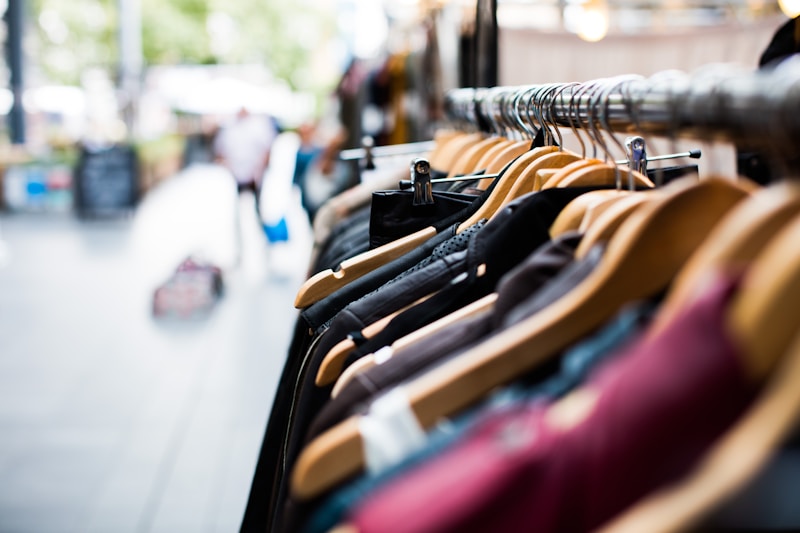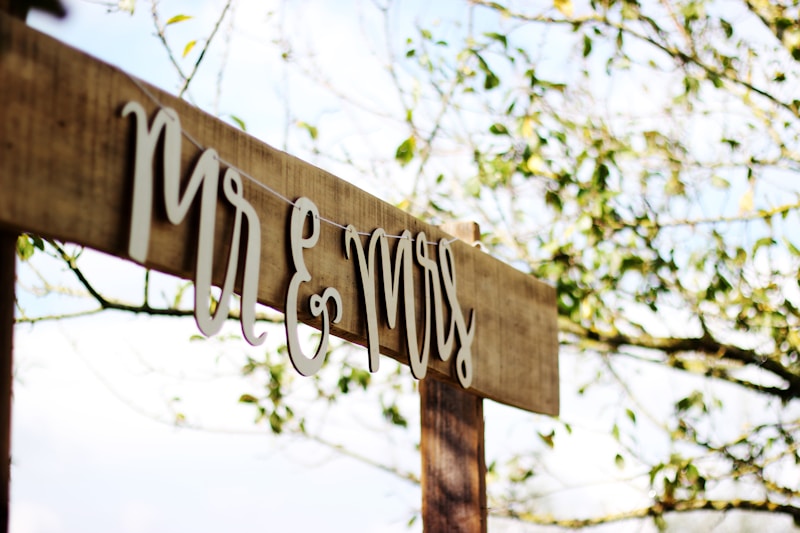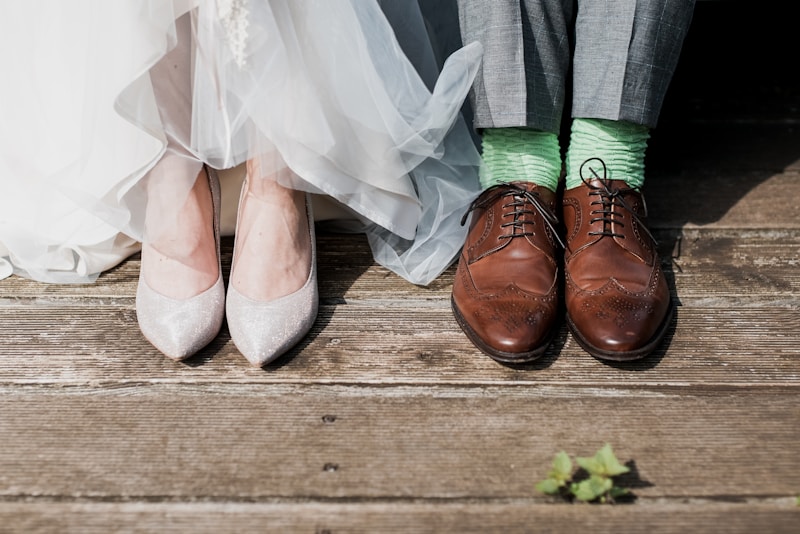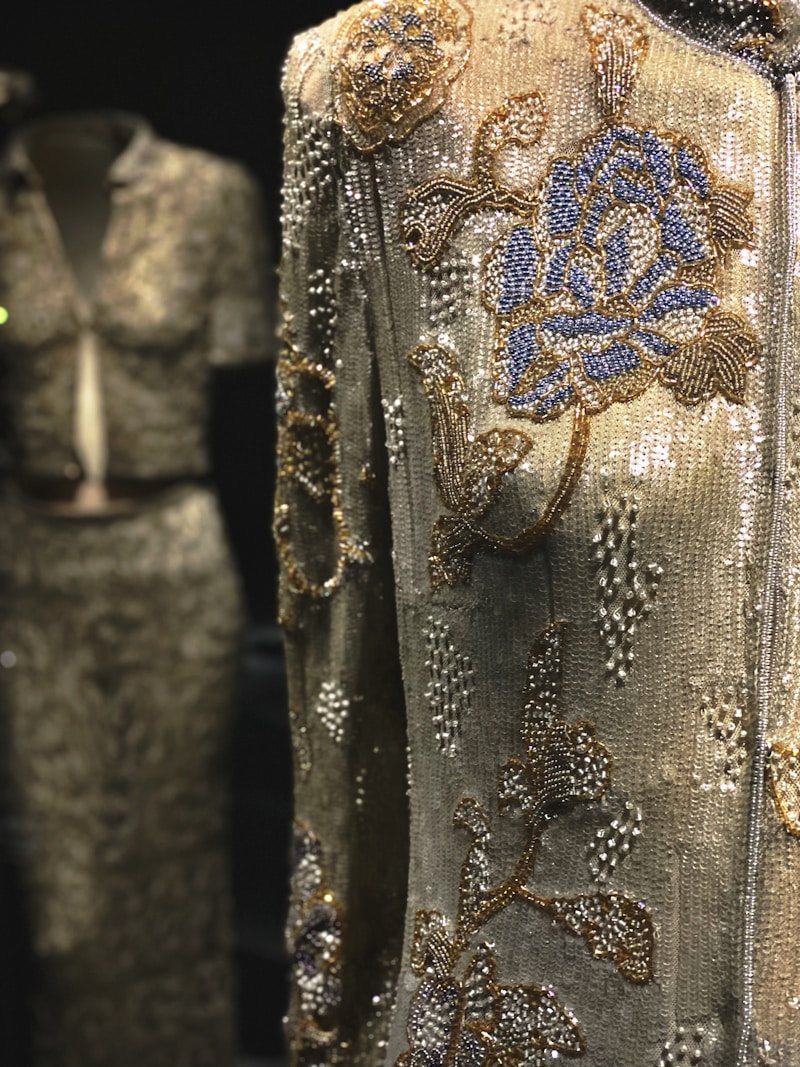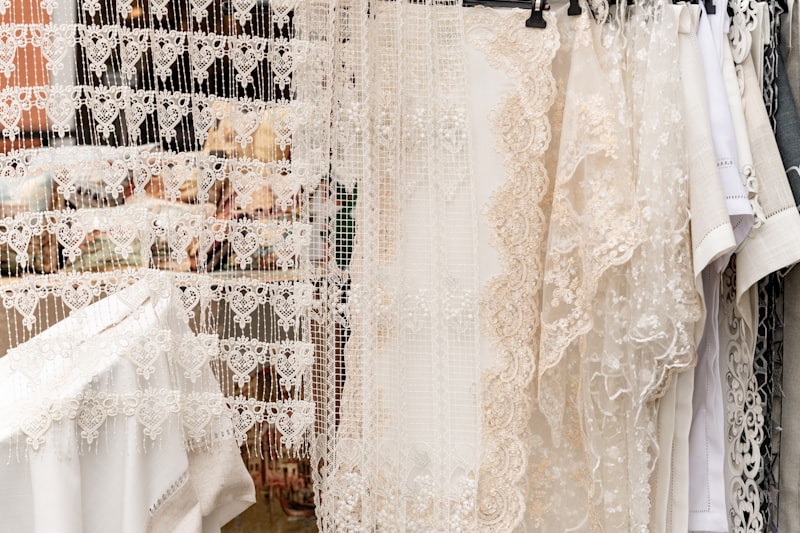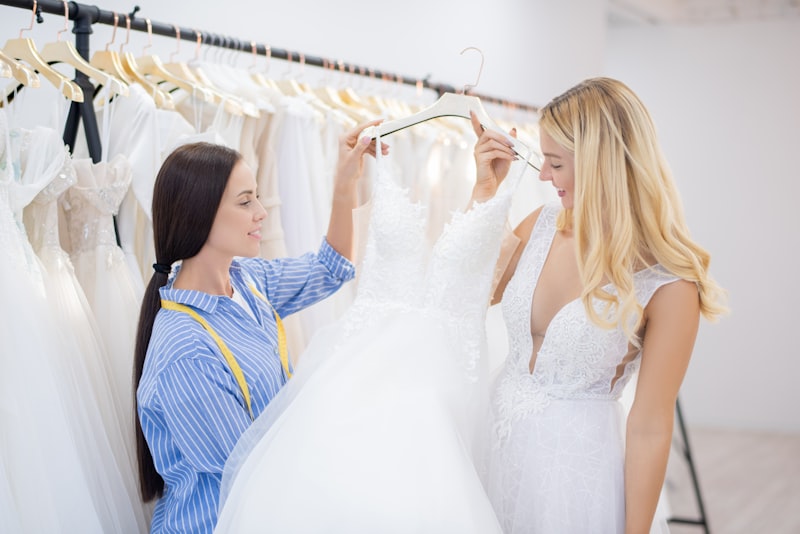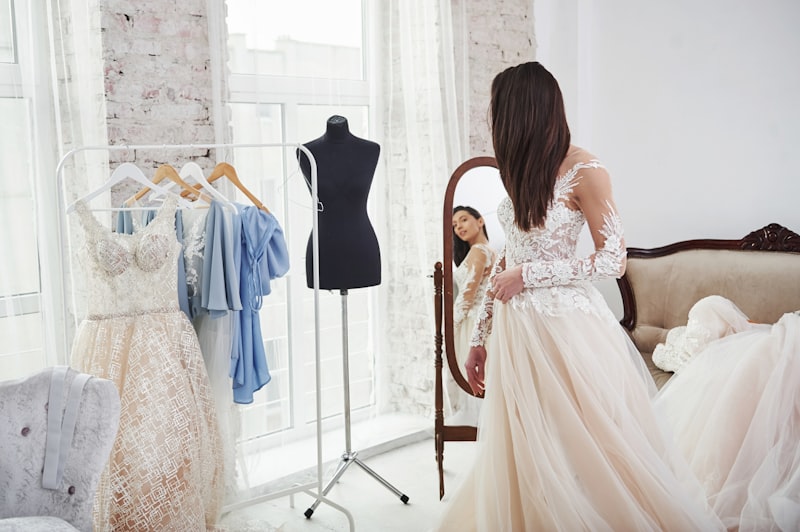Ensuring Health and Safety Compliance for Wedding Dress Shops: A Comprehensive Guide
Understanding Health and Safety Compliance in the Wedding Dress SectorThe wedding dress industry is as glamorous as it is complex, involving various challenges and risks. Ensuring health and safety compliance is crucial for wedding dress shops to protect their employees, clients, and the environment. In this article, we will explore the essential aspects of health and safety compliance specific to wedding dress shops, including risks, regulations, and best practices.Importance of Health and Safety ComplianceHealth and safety compliance is paramount for wedding dress shops not only to adhere to legal requirements but also to foster a safe and welcoming environment for clients and staff. Non-compliance can lead to serious consequences such as fines, legal actions, and reputational damage. Ensuring that you have comprehensive health and safety measures in place can enhance your business image and streamline operations.Key Health and Safety Regulations for Wedding Dress ShopsEvery wedding dress shop must navigate various health and safety regulations. Here are some key regulations to consider:RegulationDescriptionOccupational Safety and Health Administration (OSHA)Sets standards to ensure safe and healthy working conditions.Environmental Protection Agency (EPA)Regulates hazardous materials and pollution control.State-specific regulationsEach state may have additional requirements that businesses must adhere to.Common Health and Safety Risks in Wedding Dress ShopsRecognizing poten...
Understanding Tax Obligations for Bridal Retailers: A Comprehensive Guide
Introduction to Tax ObligationsIn the world of bridal retail, understanding tax obligations is crucial for running a successful business. Every retailer must navigate the complexities of sales tax, income tax, and various regulatory requirements that pertain to their unique industry. This comprehensive guide will explore the essential tax responsibilities that bridal retailers face, ensuring that your business remains compliant while thriving.Types of Taxes Bridal Retailers Must ConsiderTax obligations for bridal retailers can be categorized largely into three types: sales tax, income tax, and payroll tax. Each type has unique implications and requirements. Below, we will delve deeper into each category to give you a clear understanding.Type of TaxDescriptionSales TaxTax collected on the sale of taxable goods and services, determined by the location of the sale.Income TaxTax paid on the income generated by the business, subject to federal, state, and local regulations.Payroll TaxTax imposed on employers and employees to fund social insurance programs.Sales Tax Compliance for Bridal RetailersSales tax is one of the most immediate concerns for bridal retailers. In the United States, sales tax rates vary by state and can even differ within regions of a state. Understanding where to collect tax, how much to collect, and how to remit it is essential for compliance.Key Considerations:Taxability of Products: Not all products sold in bridal shops are subject to sales tax. For instanc...
The Ultimate Guide to Wedding Dress Retail Business Structure
Understanding the Wedding Dress Retail Business StructureThe wedding dress retail business is a lucrative and exciting venture for many entrepreneurs who are passionate about fashion and love. This article will delve into the various aspects of establishing a successful wedding dress retail business structure, covering everything from inventory management to customer relationships.1. Overview of Wedding Dress Retail BusinessBefore diving into the specifics of the business structure, it's essential to understand what a wedding dress retail business entails. It involves the sale of wedding gowns, accessories, and possibly related services such as alterations and custom designs. With a growing trend towards personalized experiences for brides, having a solid business structure can set you apart from the competition.2. Key Components of Wedding Dress Retail Business StructureEstablishing a well-defined business structure is crucial for both efficiency and scalability. The following are the key components that make up the structure of a wedding dress retail business:ComponentDescriptionInventory ManagementOrganize, track, and manage stock efficiently to meet customer demands.Customer Relationship Management (CRM)Develop strategies to engage with and retain customers.Marketing and PromotionCreate and implement marketing strategies to attract brides and boost sales.Sales StrategiesDevelop tactics for effective sales to ensure a high conversion rate.Staffing and TrainingHire skilled ...
Understanding Consumer Protection Laws Related to Bridal Sales
The world of bridal sales is enchanting, filled with dreams of the perfect wedding dress, accessories, and more. However, as a consumer planning for one of the most significant days of your life, it's crucial to understand the consumer protection laws related to bridal sales. These laws are designed to protect buyers from unfair practices and ensure that their rights are preserved. In this comprehensive guide, we will explore various aspects of consumer protection in the bridal industry, significant laws governing transactions, and essential tips for brides-to-be.The Importance of Consumer Protection Laws in Bridal SalesBridal sales occur in a marketplace often rife with emotional transactions. Brides typically make substantial financial investments in their wedding attire and other related services, which is why consumer protection laws are critical. These laws aim to provide a safety net for consumers, ensuring that they have recourse in situations such as: Deceptive advertising or misrepresentation of product quality. Issues with contracts, such as hidden fees or terms that were not clearly disclosed. Defective products that do not meet expectations. Unfulfilled promises regarding delivery and service.Types of Laws Protecting Consumers in Bridal SalesIn the United States, various federal and state laws protect consumer rights in bridal purchases. Understanding these laws can empower brides to make informed decisions. Here are some of the key laws applicable:Law...
Understanding Online Bridal Sales Legal Guidelines: A Comprehensive Guide
The bridal industry has seen a significant shift towards online sales in recent years. With this change comes the need to navigate the complex legal landscape that governs online commerce, especially in the bridal sector. This article will delve into the essential legal guidelines for online bridal sales, ensuring that both sellers and buyers are well-informed. Additionally, we will cover frequently asked questions, best practices, and provide recommendations for a successful online bridal shopping experience.Why Online Bridal Sales Are on the RiseAs more couples look to the internet for their wedding needs, online bridal sales have become increasingly popular. This section will examine the reasons behind this trend:Convenience: Online shopping allows brides to explore a wider range of products from the comfort of their homes.Variety: E-commerce platforms offer brides access to an extensive selection of gowns, accessories, and services.Competitive Pricing: Online retailers often provide lower prices compared to traditional bridal shops due to reduced overhead costs.Legal Considerations for Online Bridal SalesWhen venturing into online bridal sales, there are essential legal guidelines that sellers must follow. Here are some critical areas to consider:1. Business Registration and LicensingBefore starting an online bridal business, it is vital to register the business and obtain the necessary licenses. This ensures compliance with local laws and regulations.2. Consumer Protecti...
Advertising Regulations for Wedding Dress Stores: A Comprehensive Guide
Understanding Advertising Regulations for Wedding Dress StoresIn the wedding industry, advertising regulations play a critical role in ensuring that businesses operate fairly and transparently. If you're a wedding dress store owner or planning to enter the market, understanding these regulations is essential for compliance and successful marketing. In this article, we will explore the key advertising regulations affecting wedding dress stores, the importance of following these rules, and some best practices to ensure your advertising strategies remain effective and legal.Why Are Advertising Regulations Important?Advertising regulations are designed to protect consumers and ensure that businesses do not engage in false or misleading advertising practices. This helps maintain trust in the market and upholds the reputation of legitimate businesses.For wedding dress stores, adhering to advertising regulations is not only a legal obligation but also a good business practice. Consumers are more likely to trust and patronize businesses that are transparent about their offerings. Let’s delve deeper into the specific advertising regulations that wedding dress stores must be aware of.Key Advertising Regulations for Wedding Dress StoresRegulationDescriptionTruth in AdvertisingAll advertisements must be truthful and not misleading regarding the product’s features, benefits, and price.Pricing RegulationsClear disclosure of pricing, including any additional costs such as alterations or tax...
Understanding Bridal Shop Partnership Agreements: What You Need to Know
In the bustling world of bridal shops, partnership agreements play a crucial role in ensuring smooth operations and mutual understanding between partners. Whether you're a seasoned entrepreneur or a newcomer to the bridal industry, understanding these agreements is essential for long-term success. This article delves into the intricacies of bridal shop partnership agreements, the components involved, and important considerations to keep in mind. What is a Bridal Shop Partnership Agreement? A bridal shop partnership agreement is a legal document that outlines the rights, responsibilities, and obligations of the partners owning and operating a bridal shop. These agreements serve as a foundation for business activities and help to prevent conflicts among partners by clearly defining each party's role. Why Partnership Agreements are Essential Partnership agreements are indispensable for several reasons: Clarity: They provide a written framework that clarifies each partner's contributions, roles, and profits-sharing arrangements. Conflict Prevention: By setting out expectations and guidelines, these agreements help avert potential disputes in the future. Legal Protection: In the event of a disagreement or a partner's exit from the business, having a formal agreement safeguards your interests. Key Components of a Partnership Agreement A comprehensive partnership agreement typically includes the following key components: Component Description Profit S...
Protecting Your Bridal Shop's Brand Legally: Essential Strategies for Success
As a bridal shop owner, the dream of providing brides with the perfect wedding attire often comes with the daunting challenge of protecting your brand legally. The bridal industry is highly competitive, and ensuring that your business stands out while safeguarding its assets is crucial. In this article, we will delve into strategies on protecting your bridal shop's brand legally, discuss legal considerations, and highlight essential tips for maintaining your business’s reputation. Understanding Brand Protection Brand protection involves safeguarding your business's identity, including its name, logo, and overall image, which are critical assets in the bridal market. Legal measures can help prevent others from using your brand inappropriately, which could lead to confusion among consumers and loss of revenue. This article will guide you through various methods to secure your bridal shop's brand including trademarks, copyrights, and more. 1. Registering Your Trademark The first step in protecting your bridal shop's brand is to consider registering a trademark. A trademark is a symbol, word, or words legally registered or established by use as representing a company or product. Here’s how to navigate the trademark registration process: Steps to Register a TrademarkDescriptionStep 1Conduct a Trademark SearchStep 2Prepare Your ApplicationStep 3File with the USPTOStep 4Respond to Office ActionsStep 5Maintain Your TrademarkBy securing a trademark for your bridal shop's name and log...
Understanding Consumer Rights in Wedding Dress Purchases: What Every Bride Should Know
IntroductionPurchasing a wedding dress is one of the most significant investments for brides-to-be, representing not just a garment but a cherished memory on one of the most important days of their lives. However, it's crucial for consumers to be aware of their rights when buying such an important item. This article will delve deep into consumer rights in wedding dress purchases, providing you with the information you need to make informed decisions.Understanding Consumer RightsConsumer rights are designed to protect buyers from unfair trade practices. These rights can vary by region, so it’s essential to understand the laws that apply to your area, especially when making significant purchases like a wedding dress. In the United States, consumer protection laws can include the right to:Receive clear and accurate information about the product.Enjoy a safe and healthy product.Get a fair price for goods and services.Seek redress or refunds for defective products.The Importance of Knowing Your RightsBy understanding your consumer rights, you can avoid common pitfalls when purchasing a wedding dress. Knowledge about your rights empowers you to challenge any unfair practices, ensuring that you get the dress of your dreams without falling victim to scams or poor service.Common Issues Brides FaceBrides may encounter several issues during the process of purchasing a wedding dress. Here are some of the most common problems:IssueDescriptionConsumer Rights InvolvedDefective ProductReceiv...
Understanding the Legalities of Bridal Shop Ownership Transfer
Introduction to Bridal Shop Ownership TransferTransferring ownership of a bridal shop involves several legal considerations that can significantly impact both the seller and buyer. Whether you are looking to sell your bridal business or considering purchasing one, understanding the legalities of ownership transfer is crucial. This article will delve into the essential aspects of the ownership transfer process for bridal shops, including the necessary documentation, legal requirements, and common challenges.The Importance of Legalities in Business TransfersWhen it comes to transferring ownership of a bridal shop, the legalities involved cannot be overlooked. The right legal framework protects both parties, ensures a smooth transition, and minimizes the risk of disputes. The following sub-sections will provide insights into the legal aspects that must be considered during the transfer process.Key Legal Documents RequiredTransferring ownership of a bridal shop requires several key documents. These documents not only facilitate the transfer but also protect the interests of both the seller and the buyer. The primary documents include:DocumentDescriptionLetter of Intent (LOI)A document outlining the basic terms and conditions of the transfer.Asset Purchase AgreementSpecifies the assets being sold and the responsibilities of both parties.Bill of SaleA legal document that provides evidence of the sale between the seller and buyer.Lease AgreementIf the shop operates under a lease, th...
Building a Legal Framework for Wedding Dress Retail: Navigating the Industry with Confidence
Understanding the Legal Framework of Wedding Dress RetailThe wedding dress retail industry is a vibrant sector that caters to one of the most significant events in a person's life. As the demand for unique and luxurious wedding attire continues to grow, it becomes imperative to establish a solid legal framework to protect both retailers and consumers. This article will explore the essential aspects of creating a legal structure for wedding dress retail, covering important laws, regulations, and best practices.Why a Legal Framework is Essential in Wedding Dress RetailA legal framework is critical for several reasons: Consumer Protection: A well-defined legal structure ensures consumers have recourse in case of disputes, ensuring their rights are upheld. Regulatory Compliance: Retailers must adhere to local, state, and federal guidelines, which protect them from legal liabilities. Quality Assurance: Regulations ensure that products meet safety and quality standards, fostering trust between consumers and retailers.Key Regulations Affecting Wedding Dress RetailVarious laws and guidelines govern the wedding dress retail sector. Here, we outline some of the most significant regulations that retailers should consider:1. Consumer Protection LawsThese laws are designed to protect consumers from unfair or deceptive practices. Retailers must provide clear, accurate information about their products, including pricing, material quality, and return policies.2. Fashion LawFashion l...
Understanding Bridal Shop Lease Agreements and Their Essential Clauses
Bridal Shop Lease Agreements: A Comprehensive GuideThe bridal shop industry is flourishing, driven by the increasing number of weddings each year. However, starting a bridal shop isn't just about selecting beautiful gowns or providing excellent customer service; it also involves navigating the complexities of a lease agreement. In this article, we will delve into the crucial components of bridal shop lease agreements and examine the vital clauses that every shop owner should understand.What is a Bridal Shop Lease Agreement?A bridal shop lease agreement is a legally binding contract between a tenant (the bridal shop owner) and a landlord. This agreement allows the tenant to occupy a specific space for a defined period in exchange for rent. It's essential for bridal shop owners to ensure their lease agreements are structured favorably to protect their interests.Key Components of a Bridal Shop Lease AgreementWhen reviewing a lease agreement, several components should not be overlooked. Here are the key elements to understand:ComponentDescriptionLease TermThe duration of the lease, typically ranging from one to five years.Rent AmountThe monthly rental price and any potential increases over time.Security DepositA sum of money paid to cover damages or unpaid rent.Maintenance ResponsibilitiesClarification on who is responsible for repairs and upkeep.Permitted UseDefines the business activities allowed in the leased space.Termination ClauseConditions under which the lease can be term...
Establishing Ethical Guidelines in the Bridal Industry: A Comprehensive Approach
Understanding the Need for Ethical Guidelines in the Bridal IndustryThe bridal industry is a vibrant and essential part of the wedding sector, continuing to evolve with consumer expectations and societal values. As sustainability and ethical considerations gain prominence in various industries, the bridal sector is increasingly recognizing the need for establishing ethical guidelines. The importance of ethical practices in terms of sustainability, fair labor, and transparency cannot be overstated.Why Ethical Guidelines MatterEthical guidelines serve as a framework for businesses and consumers alike in the bridal industry. They can help address key concerns, such as: Fair labor practices Environmental sustainability Transparent sourcing of materials Diversity and inclusivity in marketing and product offeringsEstablishing robust ethical guidelines can enhance a brand's reputation and foster trust within the community, leading to increased customer loyalty and engagement.Challenges Faced by the Bridal IndustryChallengeDescriptionSupply Chain TransparencyMany bridal businesses source products from multiple suppliers, making it difficult to track ethical practices.Consumer AwarenessNot all consumers are aware of ethical practices in bridal shopping, leading to decisions based solely on price.Recycling OptionsLimited recycling options for wedding dresses and accessories can contribute to waste.Crafting Effective Ethical GuidelinesEstablishing ethical guidelines requires...
Consequences of Non-Compliance in Bridal Business: What You Need to Know
Understanding Non-Compliance in the Bridal IndustryThe bridal business is a vibrant and essential part of the wedding industry, but it comes with its own unique set of regulations and compliance requirements. Non-compliance can have serious repercussions for bridal shops and businesses. This article explores the consequences of non-compliance in the bridal business, including legal implications, financial consequences, and ways to ensure adherence to regulations.What Does Non-Compliance Mean?Non-compliance refers to the failure to act in accordance with established laws, regulations, and guidelines. In the bridal business, this can encompass a range of areas such as health and safety regulations, consumer protection laws, and business licensing requirements. Understanding what constitutes non-compliance is critical for bridal business owners.Key Areas Where Non-Compliance Can OccurAreaDescriptionHealth and SafetyFailure to maintain safe premises for customers and staff.Consumer RightsNot adhering to warranty and return policies for products sold to consumers.LicensingOperating without the necessary business licenses and permits.Data ProtectionNot safeguarding customer data in compliance with regulations like GDPR.The Legal Consequences of Non-ComplianceOne of the most significant aspects of non-compliance in the bridal business is the potential legal fallout. Violating laws and regulations can lead to various legal actions, including:Fines and Penalties: Regulatory bodies may...
Legal Compliance in Bridal Business: A Complete Guide
The bridal industry is one of the most vibrant and emotional sectors, as it caters to one of the most significant events in a person's life—weddings. However, like any business, the bridal industry must adhere to various legal regulations to protect consumers, employees, and the business itself. In this article, we will explore the importance of legal compliance in the bridal business, outline key legal aspects to consider, and provide practical advice for bridal business owners.Understanding Legal Compliance in the Bridal BusinessLegal compliance refers to the requirement for businesses to follow laws and regulations relevant to their operations. In the bridal business, compliance is essential not only for maintaining a positive reputation but also for avoiding legal issues that could arise from negligence or oversight. Here are some of the critical areas of legal compliance specific to the bridal industry:Key Legal AreasDescriptionLicensing and PermitsNecessary legal documents to operate a wedding-related business.Contract LawUnderstanding and drafting contracts with clients and vendors.Consumer ProtectionLaws that protect consumers from unfair business practices.Employment LawRegulations regarding hiring, firing, and employee rights.Intellectual PropertyCreating and protecting original designs and branding.Licensing and PermitsBefore starting any bridal business, it is crucial to understand the necessary licensing and permits required in your location. This may include:Bus...
Starting a Bridal Boutique Legally: A Comprehensive Guide
Starting a Bridal Boutique Legally: Step-by-Step GuideAre you dreaming of owning a bridal boutique? The wedding industry is booming, and starting a bridal boutique can be an exciting and rewarding venture. However, it is crucial to ensure that you start your business legally to avoid any complications later. This guide will provide you with everything you need to know about starting a bridal boutique legally, from understanding the legal requirements to setting up your business structure.Understanding the Legal Requirements for a Bridal BoutiqueTo successfully start a bridal boutique, there are several legal requirements to consider:Business License: Obtain a business license from your local government. This is generally a straightforward process, but requirements may vary by location.Business Structure: Decide on a business structure (sole proprietorship, LLC, corporation). Each has its pros and cons regarding liability and taxes.Sales Tax Permit: If you plan to sell dresses, you may need a sales tax permit. Check your state’s requirements for resale permits.Insurance: Consider acquiring general liability and property insurance to protect your business and assets.Operating Agreements: If you have partners, create an operating agreement to outline roles and responsibilities.Choosing a Business StructureSelecting the right business structure is critical. Here’s a brief summary of the most common types:Business StructureAdvantagesDisadvantagesSole ProprietorshipEasy to set up; ...
Essential Guide to Bridal Shop Licenses and Permits: A Comprehensive Overview
Understanding Bridal Shop Licenses and PermitsStarting a bridal shop can be an exciting venture for entrepreneurs who are passionate about weddings and fashion. However, one of the most crucial aspects to consider before launching your business is obtaining the necessary licenses and permits. This guide will provide you with an in-depth understanding of bridal shop licenses and permits, ensuring that you comply with local regulations and set your business up for success.The Importance of Licenses and PermitsLicenses and permits are essential for any business, including bridal shops. They serve several purposes: Legal Compliance: Operating without the required licenses can lead to fines and legal issues. Consumer Trust: Having proper licenses boosts your credibility and trustworthiness in the eyes of customers. Insurance Needs: Many insurance companies require businesses to have specific licenses before they can issue coverage.Types of Licenses and Permits NeededWhen starting a bridal shop, you may need to acquire various licenses and permits depending on your location. Here are some common types: License/Permit Description Business License A general license required for operating any business legally in your area. Sales Tax Permit A permit that allows you to collect sales tax from customers. Fire Department Permit Ensure that your shop complies with fire safety regulations. Signage Permit Required if you plan to display a sign outside your shop. Home Occupation ...
Ultimate Guide to Business Setup for Wedding Dress Retail
Starting a Wedding Dress Retail Business: A Comprehensive GuideHello aspiring entrepreneurs! If you're passionate about fashion and love weddings, starting a wedding dress retail business could be the perfect opportunity for you. In this article, we will cover everything you need to know about setting up your wedding dress retail business, including key strategies, location considerations, target market, and essential tips for success.Understanding the Wedding Dress MarketThe wedding dress industry is a thriving sector of the broader fashion landscape, with couples willing to invest significant amounts in their wedding attire. According to industry reports, the average cost of a wedding dress can range from $1,500 to $3,500, depending on the brand and designer. Understanding market trends and consumer behavior in this niche is crucial to your business setup for wedding dress retail.Identifying Your Target AudienceYour target audience will primarily consist of brides-to-be and their families. However, it is essential to segment your audience further based on demographics, such as age, income level, and geographical location. By understanding the specific needs and preferences of your target market, you can tailor your inventory and marketing strategies accordingly.Choosing the Right Business ModelWhen setting up your wedding dress retail business, you have multiple business models to consider:Business ModelDescriptionBrick-and-Mortar StoreA physical location where customers ca...
Navigating Local Business Laws for Bridal Shops: A Comprehensive Guide
Understanding the Essentials for Bridal Shop OwnersStarting a bridal shop can be an exciting venture, filled with dreams of creating magical experiences for brides. However, before diving into this bustling industry, it is vital to understand the intricate local business laws that govern bridal shops. This guide aims to provide bridal shop owners with crucial insights to help them navigate these laws effectively.The Importance of Local Business LawsLocal business laws play a pivotal role in the successful operation of any enterprise, including bridal shops. These laws ensure that businesses operate fairly, maintain safety standards, and protect consumer rights. For bridal shop owners, being well-versed in these regulations not only shields them from potential legal issues but also enhances their credibility and reputation.Key Areas of Local Business Laws Impacting Bridal ShopsWhen considering the operation of a bridal shop, there are several key areas of local business law that owners must focus on:Law AreaDetailsLicensing and PermitsMost areas require bridal shops to obtain specific licenses and permits to operate legally. This may include a business license and sales tax permit.Health and Safety RegulationsBridal shops must comply with local health and safety regulations, particularly if they offer alterations or fittings on-site.Labor LawsUnderstanding labor laws is crucial if hiring employees. This includes knowledge of minimum wage, working hours, and employee rights.Con...
Understanding Bridal Shop Zoning Requirements: A Comprehensive Guide
When considering opening a bridal shop, one of the essential factors to keep in mind are the zoning requirements in your area. This guide will take you through the important aspects of bridal shop zoning requirements, helping you navigate the regulations to ensure your business dream becomes a reality. What Are Zoning Requirements? Zoning requirements are laws that regulate how properties in specific geographic zones can be used. They are established by local governments and can vary widely depending on the area. For a bridal shop, it is essential to determine whether the location you are considering is zoned for retail use. Types of Zoning Understanding different types of zoning can help you find the best location for your bridal shop. Here are the most common types that may be relevant: Commercial Zoning: This is typically where retail shops, including bridal shops, are allowed. It is crucial to check if the specific area within the commercial zone permits bridal shops. Mixed-Use Zoning: This zoning allows for a combination of residential, commercial, and sometimes industrial uses. A bridal shop located in a mixed-use area can benefit from foot traffic from nearby residents. Residential Zoning: In most cases, bridal shops are not permitted in strictly residential zones, so you need to ensure that your potential location is not subject to this limitation. Why Are Zoning Requirements Important for Bridal Shops? Understanding and abiding by zoning requirements i...

